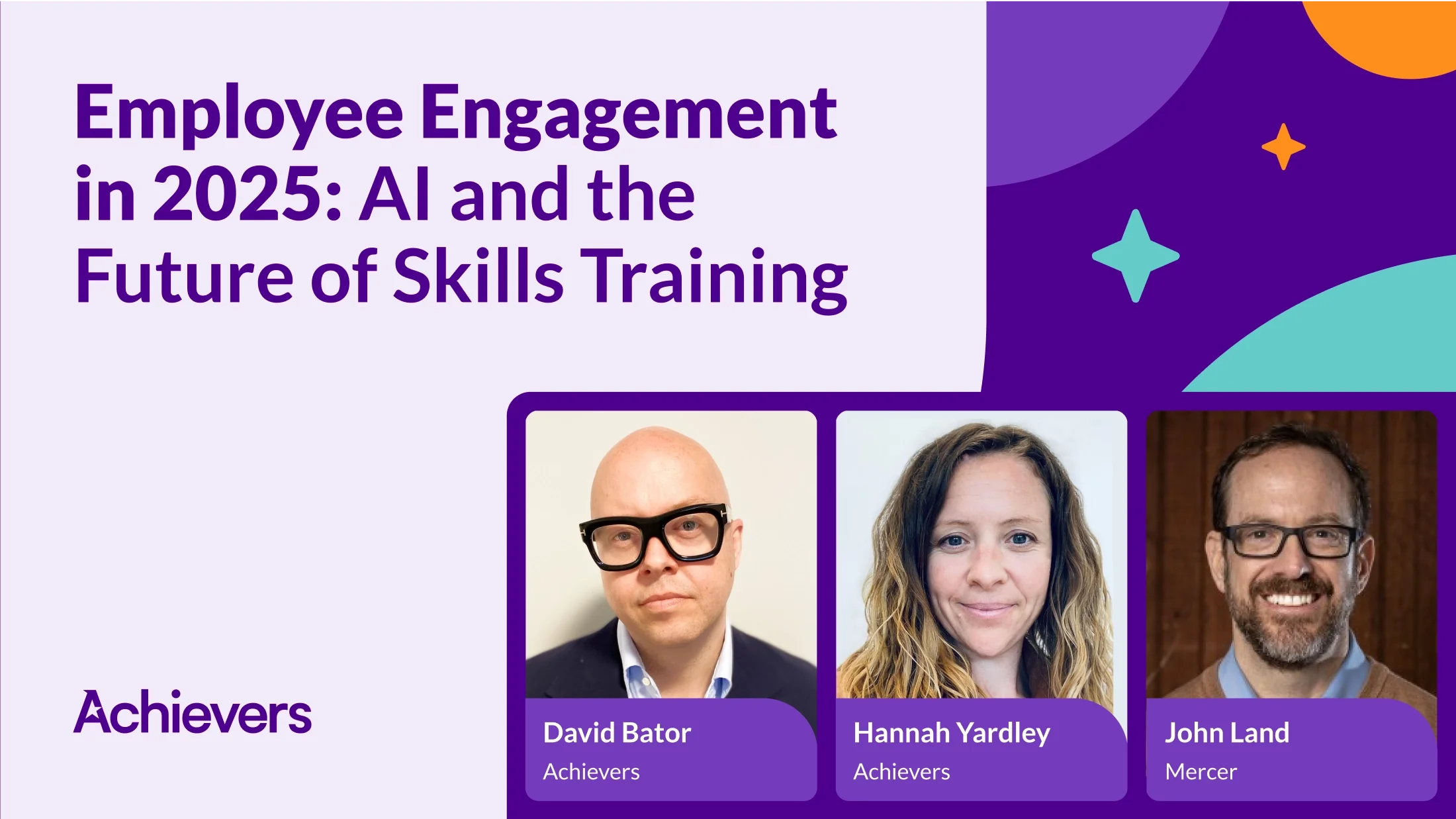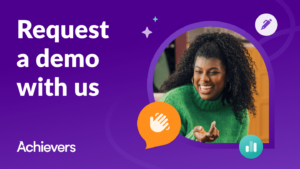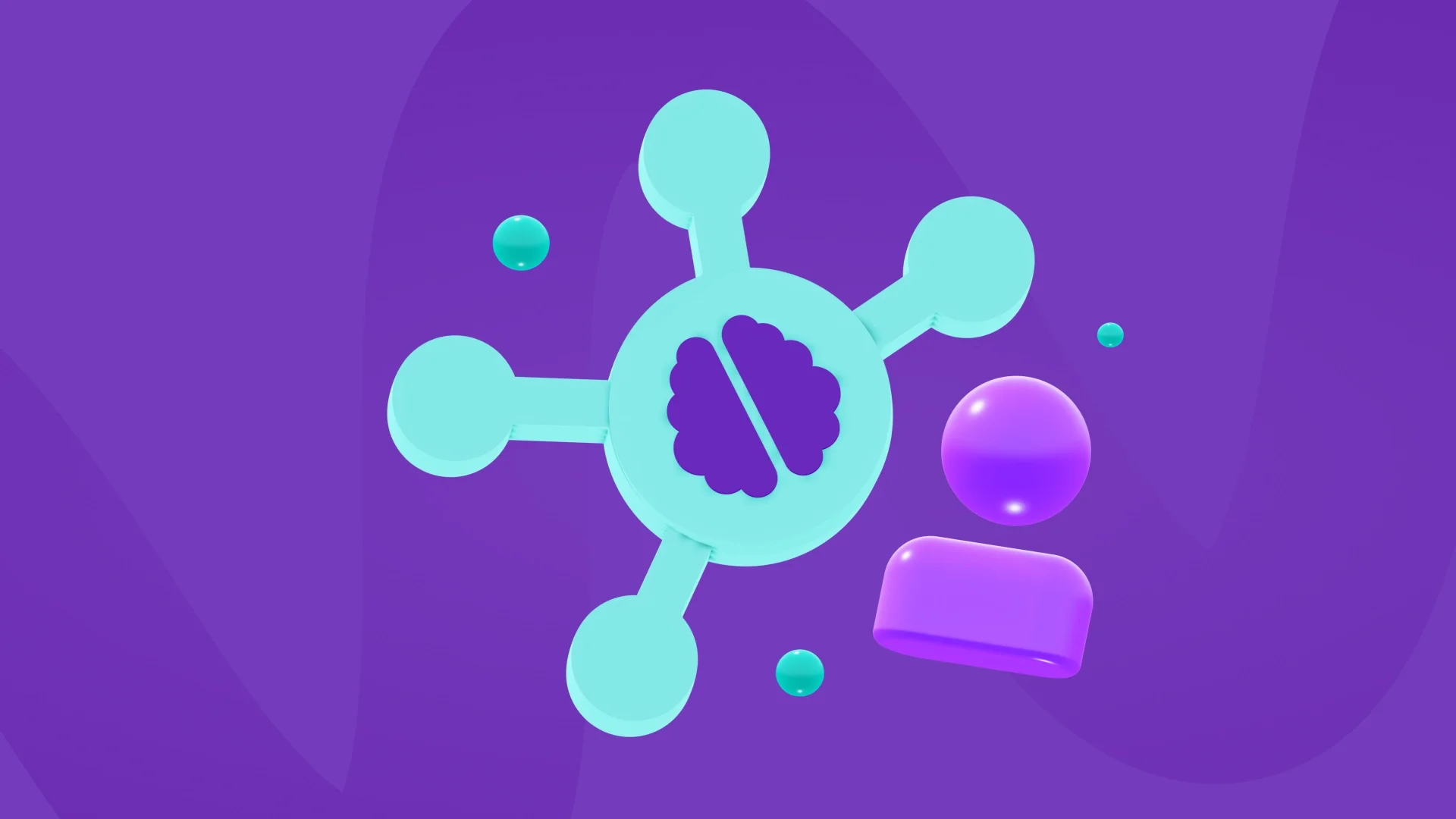Table of contents
HR is evolving at lightning speed, and artificial intelligence (AI) is at the heart of that transformation. No longer just a back-office tool, AI is redefining how organizations attract, engage, and retain talent — elevating both efficiency and the employee experience. It’s making recognition more personal, retention strategies more proactive, and decision-making more data driven. For HR leaders, the question isn’t whether to embrace AI, but how to harness it for the greatest impact.
But what does this mean for the future of AI in HR? From enhancing employee recognition and retention to the cutting-edge capabilities of AI-powered tools, AI is setting a new standard for how companies support and connect with their workforce. Ready to see how AI can help build a stronger, more connected workforce? Let’s dive in.
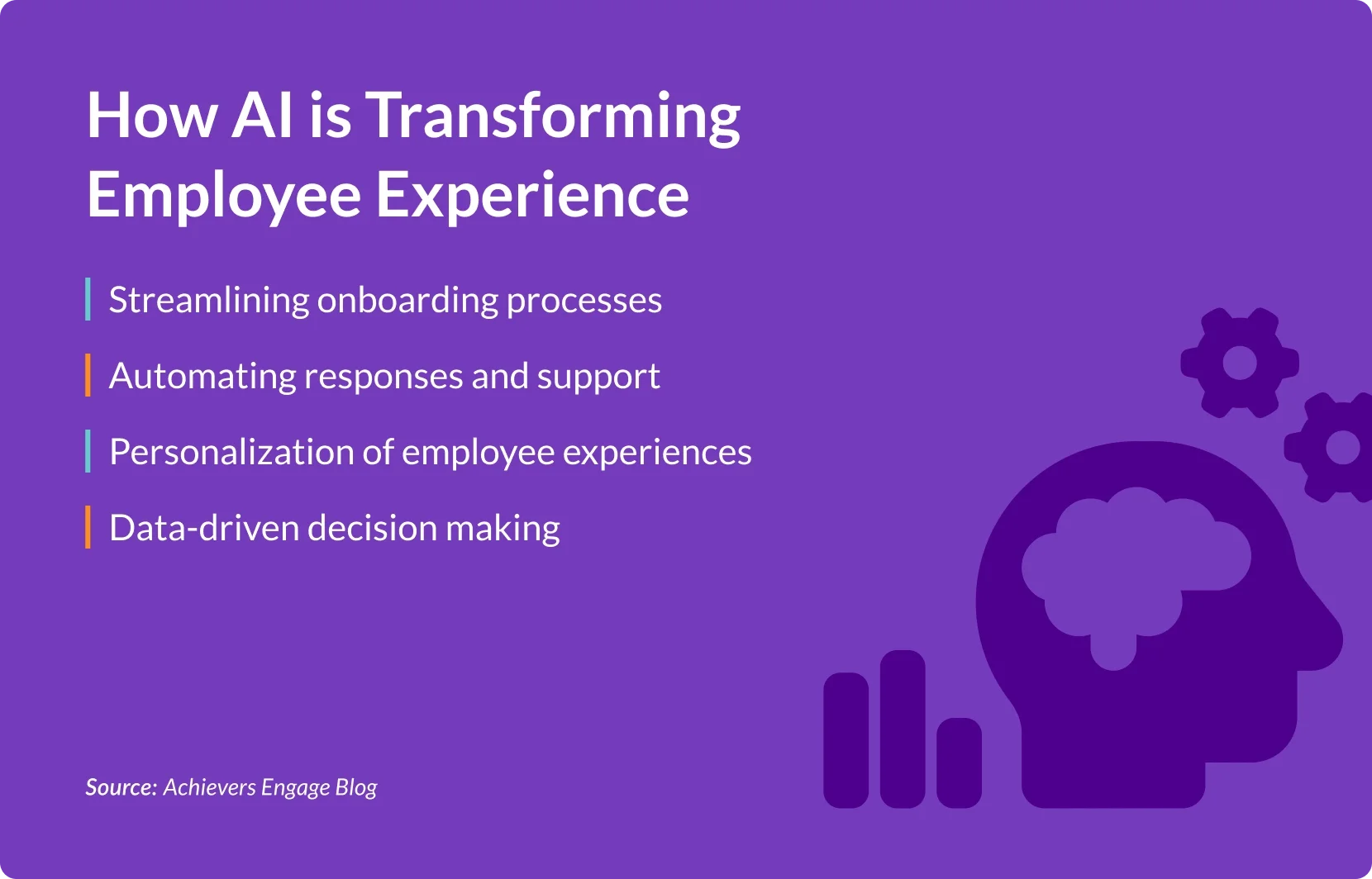
How AI is transforming the employee experience through AI
AI is redefining how organizations engage, support, and retain their workforce by making work more seamless, personalized, and responsive. From the moment a new hire walks through the door to every milestone in their journey, AI-driven tools are enhancing efficiency, reducing friction, and empowering employees to do their best work. Here’s how AI is revolutionizing the employee experience at every stage:
Streamlining the onboarding processes
First impressions matter, and AI is helping organizations create smoother, more engaging onboarding experiences. AI-powered chatbots guide new hires through paperwork, answer common questions, and provide personalized training recommendations. Automated workflows ensure employees receive the right resources at the right time, reducing administrative burdens and accelerating productivity from day one.
Automating responses and support
AI-powered virtual assistants and HR chatbots provide instant answers to common inquiries, reducing wait times and freeing up HR teams for higher-value tasks. Whether employees need help accessing benefits, requesting time off, or troubleshooting tech issues, AI-driven support ensures fast, accurate responses 24/7, enhancing the overall employee experience.
Personalizing the employee experiences
AI analyzes employee preferences, behaviors, and feedback to tailor experiences in real time. From personalized learning paths to customized recognition programs, AI ensures employees receive relevant opportunities, rewards, and engagement initiatives. This level of personalization fosters a deeper sense of belonging and motivation, ultimately driving higher satisfaction and retention.
Making data-driven decisions
AI enables HR teams to move beyond guesswork by analyzing workforce trends, engagement metrics, and sentiment data. Predictive analytics help identify potential turnover risks, optimize workforce planning, and measure the effectiveness of HR initiatives. By leveraging AI-driven insights, organizations can make proactive, informed decisions that enhance employee well-being and business outcomes.
AI-powered employee recognition
AI in HR is revolutionizing employee recognition by making it more efficient, personalized, and meaningful. For example, the Achievers Employee Experience Platform™ uses AI to analyze engagement data, suggest tailored recognitions, and automate acknowledgments for key milestones — ensuring every achievement is celebrated.
Beyond this, AI unlocks even more ways to elevate recognition:
- AI-powered analytics: Gain insights into recognition trends and employee engagement patterns, helping tailor recognition strategies to boost overall morale.
- Sentiment analysis: Use AI to gauge employee sentiment and tailor recognition messages to ensure they are received positively and authentically.
- Predictive analytics: Identify high-potential employees and areas where additional recognition might be needed to prevent burnout and disengagement.
- Personalized reward suggestions: AI can recommend rewards that align with individual preferences and motivations, enhancing the relevance and impact of recognition.
- Integration with other systems: Seamlessly integrate AI recognition tools with other HR platforms to create a cohesive and comprehensive employee experience.
AI’s role in employee retention across industries
Employee retention remains a top challenge across industries, with each sector facing unique workforce pressures. AI is stepping in as a powerful tool to not only predict and prevent turnover but also to create more engaging, supportive work environments. Here’s how AI is transforming retention strategies in key industries:
Manufacturing
Manufacturing has long struggled with high turnover rates, largely due to the repetitive nature of tasks, physically demanding work, and unpredictable schedules. These challenges can lead to employee dissatisfaction and high attrition rates.
- AI solutions: Predictive analytics help manufacturers forecast staffing needs, optimize shift scheduling, and identify burnout risks before they escalate. AI-driven automation also reduces the burden of repetitive tasks, allowing employees to focus on higher-value, less strenuous work.
- Impact: By proactively addressing workforce planning and implementing well-being initiatives, AI enhances job satisfaction, reduces fatigue, and improves retention rates in a historically high-turnover industry.
Healthcare
With rising staffing shortages and burnout, healthcare professionals face immense pressure that directly impacts retention. Long hours, administrative overload, and emotional strain contribute to employee dissatisfaction and frequent turnover.
- AI solutions: AI streamlines administrative tasks like documentation and scheduling, allowing healthcare workers to focus on patient care. It also enhances coordination across teams, reducing inefficiencies that contribute to stress.
- Impact: By easing workloads and improving support systems, AI helps prevent burnout, enhances job satisfaction, and strengthens retention in an industry where employee well-being is critical.
Financial services and insurance
Automation is reshaping financial services and insurance, eliminating routine tasks but also raising concerns about job security. As AI takes over repetitive processes, organizations must find ways to retain employees by shifting them into higher-value roles.
- AI opportunities: AI-powered reskilling and upskilling programs help employees transition into more strategic, analytical, or advisory roles. Personalized learning platforms can also be used to recommend courses based on individual strengths and career goals.
- Impact: By investing in employees’ growth and career mobility, organizations boost engagement, foster loyalty, and reduce turnover, ensuring AI is a tool for empowerment rather than displacement.
Professional services
With AI managing data-heavy tasks like research, reporting, and analysis, the role of employees in professional services is evolving. While AI enhances efficiency, organizations must ensure employees remain engaged by focusing on high-impact work.
- AI solutions: AI enables professionals to shift from routine data processing to strategic, client-centric activities. By handling administrative burdens, AI frees up employees for creative problem-solving, relationship-building, and innovation.
- Impact: Employees experience greater job satisfaction when they can focus on meaningful work. This not only improves retention but also drives a more motivated and engaged workforce.
Achievers’ AI features: Driving positive change
Achievers is at the forefront of AI-driven innovation in HR, transforming how organizations recognize, reward, and support their employees. With cutting-edge tools designed to foster inclusivity, personalize reward experiences, enhance workplace connections, and provide real-time assistance, Achievers ensures that every employee feels valued and engaged.
By seamlessly integrating AI into our platform, Achievers empowers organizations to build stronger cultures, drive meaningful recognition, and create a workplace where people thrive. Here are just a few of the AI tools we offer:
Inclusion Coach
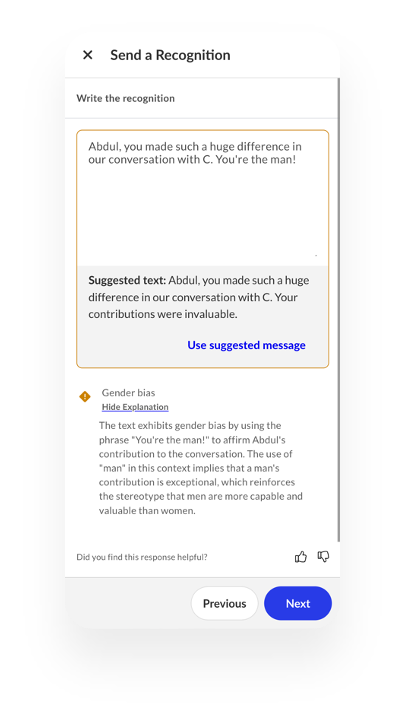
Inclusion Coach, Achievers’ first GenAI tool, helps employees recognize and reduce bias in peer recognitions by flagging biased language in real time and suggesting inclusive alternatives. With research-backed explanations and multiple review options, it fosters continuous learning, empowering employees to create a more inclusive workplace while strengthening belonging, trust, and connections across teams.
Personalized Rewards Recommender
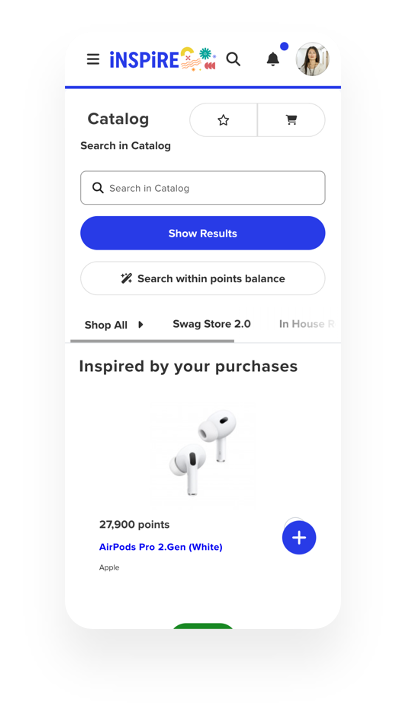
Personalized Rewards Recommender is a machine learning-powered feature that enhances the reward redemption experience on Achievers’ marketplace. By analyzing each member’s history, preferences, and available points, it delivers tailored suggestions — making it easier for employees to find meaningful rewards while driving higher engagement and satisfaction.
Community Newsfeed
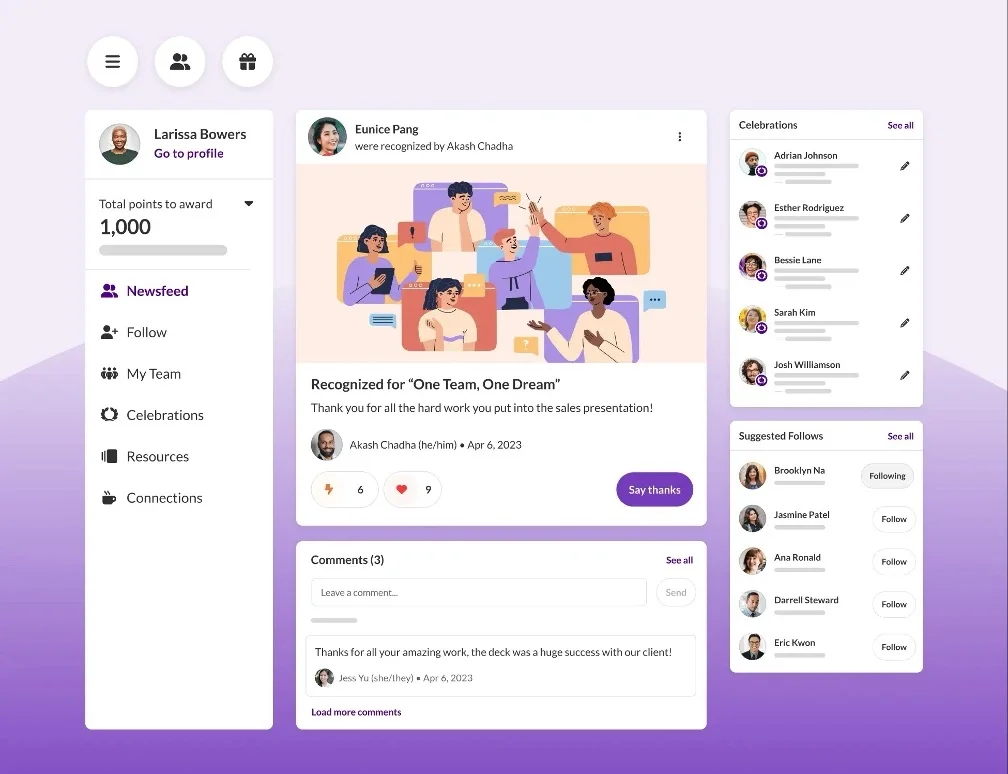
Community Newsfeed leverages machine learning to strengthen workplace connections by ensuring employees see the most relevant recognition moments and content. By personalizing the feed based on user interactions, this feature keeps employees engaged, fosters a culture of appreciation, and amplifies the impact of recognition across the organization.
Otto Chat Bot
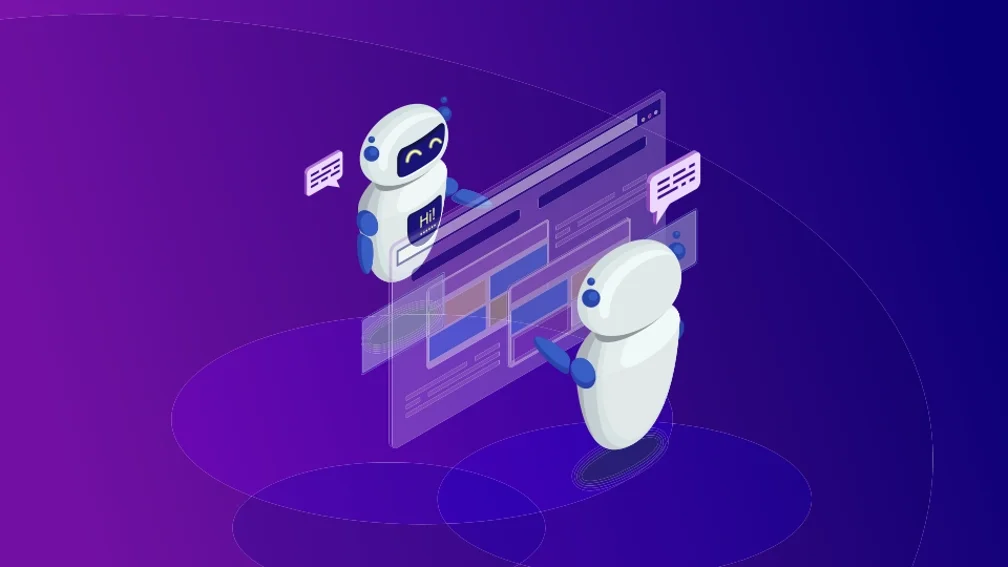
Otto Chat Bot is a generative AI-powered assistant that delivers personalized, 24/7 support through interactive conversations. By intelligently responding to customer inquiries with generative AI and pre-programmed intents, Otto streamlines communication, reduces workload for support teams, and ensures employees and customers get the answers they need—instantly and efficiently.
Best practices for integrating AI into HR
As AI transforms HR functions, organizations must implement it thoughtfully to ensure fairness, accuracy, and alignment with company values. Here are key best practices to maximize AI’s potential while maintaining trust and transparency:
Ensure ethical use of AI with a focus on privacy and transparency
AI in HR deals with sensitive employee data, making privacy and ethical considerations paramount. Organizations should be transparent about how AI tools collect, analyze, and use data, ensuring compliance with data protection regulations. Clear communication about AI’s role fosters trust and reassures employees that these tools enhance — not replace — human interactions.
Combine AI insights with human judgment for balanced decision-making
While AI provides powerful insights, final HR decisions should always involve human oversight. AI can identify patterns and predict outcomes, but human professionals bring essential context, empathy, and ethical considerations. By using AI as a decision-support tool rather than a standalone authority, organizations can create fairer and more effective HR policies.
Continuously monitor and update AI systems to align with organizational values
AI models should evolve alongside the organization to remain effective and aligned with company culture. Regular audits, employee feedback, and ongoing refinements help prevent biases, ensure accuracy, and keep AI-driven processes relevant. A proactive approach to monitoring AI systems strengthens their reliability and reinforces the organization’s commitment to ethical and responsible AI use.
Looking ahead: Embracing AI for a stronger workforce
AI is transforming HR, making processes more efficient, employee experiences more meaningful, and decision-making more strategic. From personalized recognition to predictive analytics, AI empowers organizations to create inclusive, high-performing workplaces where employees thrive.
Achievers is leading this shift with AI-driven tools designed to enhance engagement, recognition, and retention. Companies that embrace these innovations will be better equipped to attract and support top talent in an evolving workforce.
The future of AI in HR isn’t about replacing human connections — it’s about strengthening them. Want to learn more? Book a demo to see how Achievers can help you build a workplace where employees feel valued, supported, and set up for success.
